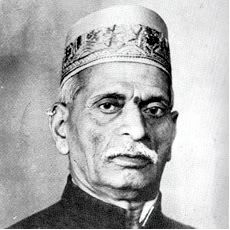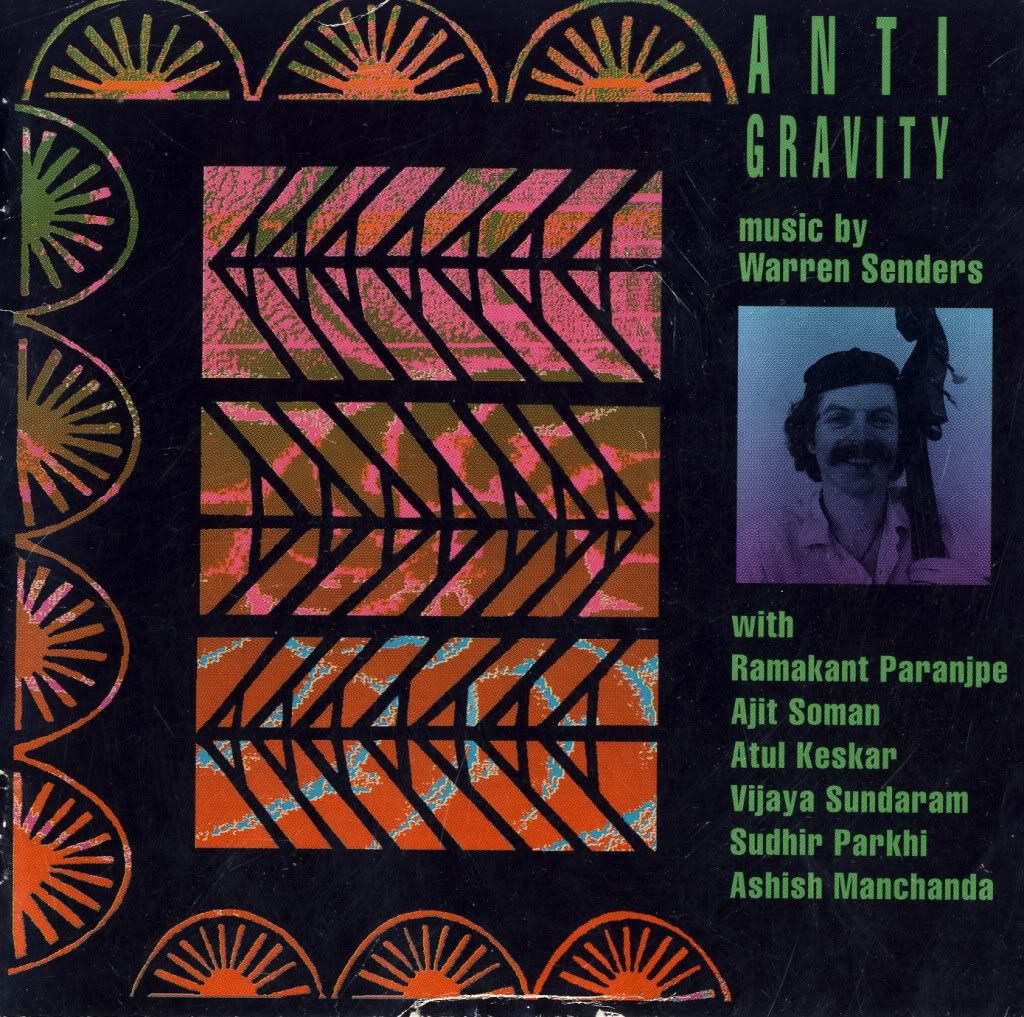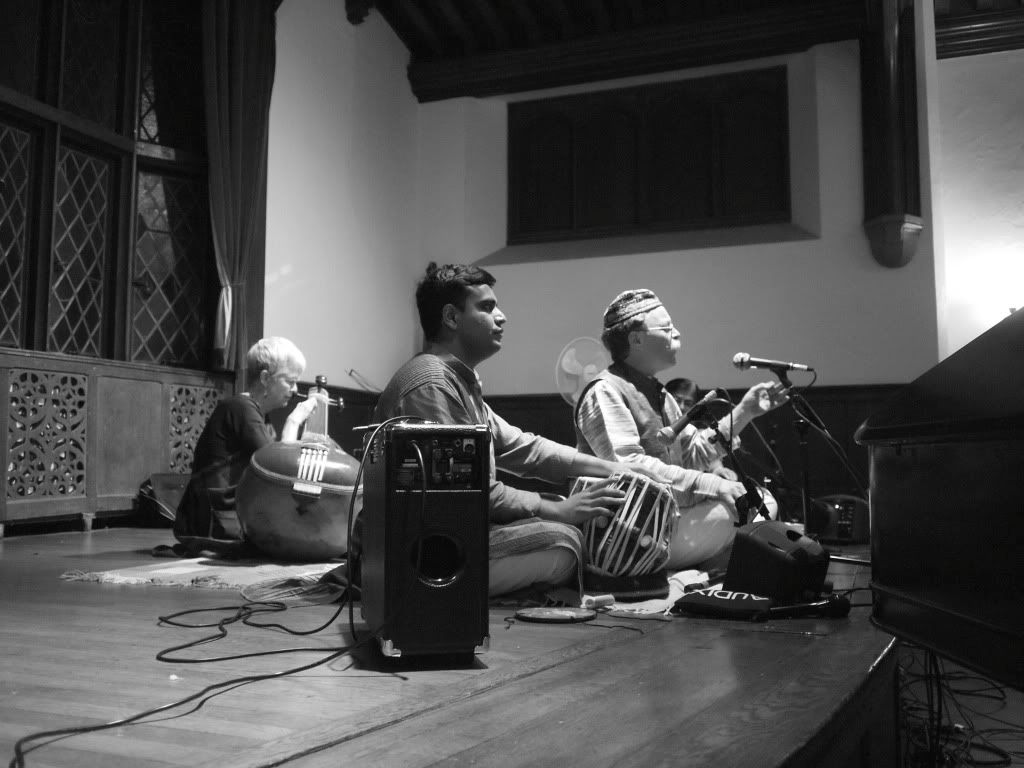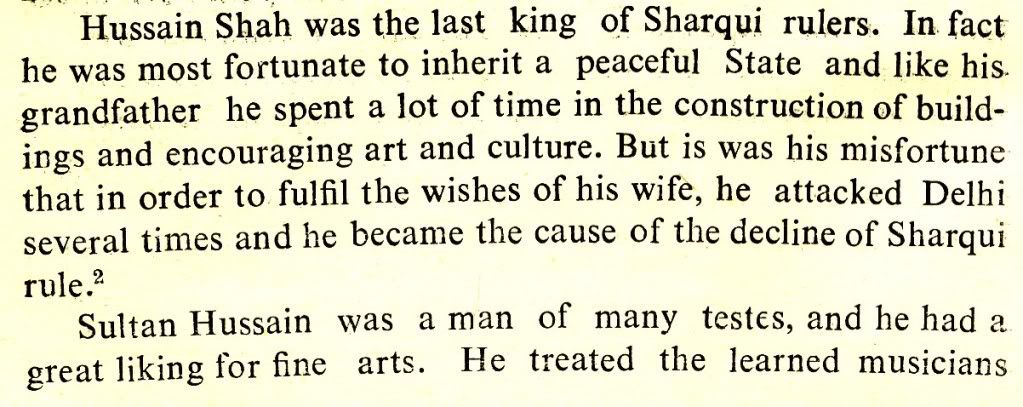Education India Indian music music: S.G. Devasthali taleem
by Warren
leave a comment
Meta
SiteMeter
Brighter Planet
Raga Bhatiyar: Taleem from S.G. Devasthali, 1994
This clip has just gone up on the S.G. Devasthali memorial page. It’s 30 minutes of detailed instruction from Guruji to me and Vijaya in early 1994.
Hope you enjoy it.
India Indian music music: genius khyal Krishnarao Shankar Pandit
by Warren
leave a comment
Meta
SiteMeter
Brighter Planet
Amazing. Just Amazing.
More Krishnarao Shankar Pandit.
Here is his magnificent Devgandhari:
And another morning raga, Deshkar. His audacity of imagination is fully evident here, for example in his excursions into the lower register — Deshkar is usually considered to dwell exclusively in the upper range, so it’s quite a feat to sing in the basement without making it turn into Bhoopali.
And finally a bhajan in Raga Pilu, the oft-heard “Raghubir tum ko mori laaj.”
More to come.
India Indian music music: genius Gwalior gharana improvisation khyal Krishnarao Shankar Pandit
by Warren
1 comment
Meta
SiteMeter
Brighter Planet
Krishnarao Shankar Pandit: Raga Darbari Kanada

One of the greatest recorded performances of Hindustani music, this 30-minute gem comes from 1957, when Krishnarao Shankar Pandit was in his prime. The force and power of his improvisations are astonishing; there is nobody else in Hindustani tradition who can imagine some of the things he comes up with, let alone execute them with such verve and clarity.
Anokhey Lal, who was known for his brilliant and supportive theka, is accompanying on tabla. The violinist is not credited. Any thoughts?
Enjoy.
India Indian music Jazz music Warren's music: Ajit Soman Antigravity Ashish Manchanda Atul Keskar Indo-Jazz Ramakant Paranjpe Sudhir Parkhi Vijaya Sundaram
by Warren
4 comments
Meta
SiteMeter
Brighter Planet
Antigravity — The Indian Group, 1990-1991

Here are the pieces which make up the first Antigravity CD, released as “Antigravity — The Music of Warren Senders” (Accurate AC-4307), along with scans of the complete CD booklet & tray card. These were recorded at Ishwani Kendra Studios in Pune in 1990 and 1991.
This has been out of print for years. I only have a few mint copies left.
more »
environment India Indian music June 12 Action music Warren's music: Pahadi Puriya Raga
by Warren
leave a comment
Meta
SiteMeter
Brighter Planet
Singing For The Planet: Warren Senders’ Set
Here is my complete set from the “Singing For The Planet” concert. Priti Chakravarty – harmonium, Akshay Navaladi – tabla, Harriotte Hurie – tamboura.

Raga Puriya – three-part khyal performance.
Vilambit Ektaal: Eri malaniyaa begi gunde laawori phulan ke harawa / Bela chameli gulab daru bane ke garawa (traditional composition)
Madhya Tintaal: Main to kaari aayi piya sanga rangaraliyaa / main vaari jaat pan ghat ke ghaat // Ek to dar mohe saas nananda ko / duje duraniyaa jaitaniyaa sataave / nisa din Prem Piya ki baat hai (composition by Ut. Faiyaaz Khan)
Drut Ektaal: tarana (composition by Pt. S.G. Devasthali)
Jyuda Kinjo Dolna (“How My Heart Sways”) – Pahadi folksong
Jyuda kinjo dolna ho manda kinjo bolna / karle mane diyo mauja jinde // Harapur, Nurapur thandiyana chhavaa / maaya balocheda yaar balocheda, hai thaan thaan ho // Chhand mhara chadaiyaa pipari ne ohale / chhand mhara dole, chhand mhara bole, nai aan aan ho
Education environment India Indian music music Personal Warren's music: copyright intellectual property open mics songs
by Warren
leave a comment
Meta
SiteMeter
Brighter Planet
You Can’t Steal A Gift!
My ongoing exploration of alternative ways of thinking about our economic paradigm has given me a new set of lenses to use when I look at the things I already do.
I’m a musician; it’s how I make my living.
Recently a colleague linked to a story in the Boston Globe:
Across New England, church coffeehouses, library cafes, and eateries that pass the hat to pay local musicians or open their doors to casual jam sessions are experiencing a crackdown by performance rights organizations, or PROs, which collect royalties for songwriters.
His FB comment described them as: People trying to get something for nothing and then whining when they are thwarted.
Sympathetic though I am to the needs of working professionals, his words nevertheless didn’t set well with me. This post is my attempt at resolving that dissonance.
I’m a musician. It’s how I make my living — but it’s also how I make my life.
humor India Indian music: typographical error
by Warren
1 comment
Meta
SiteMeter
Brighter Planet
The Great Vowel Shift
The Best Typographical Error in the World…
…is on page 111 of Najma Perveen Ahmed’s book, “Hindustani Music.”
Ladies and Gentlemen, I present to you:

humor India Personal: hippies sociology Tribhuwan Kapur
by Warren
1 comment
Meta
SiteMeter
Brighter Planet
A Few Words About Hippies and India
Anyone who’s spent time in India knows the phenomenon of the hippie. Hippie participation in Indian music started thanks to George Harrison and Ravi Shankar; while many professional Hindustani musicians earn healthy teaching fees from these questing souls, most of them regard “hippies” with a justifiably skeptical eye.
About ten years ago, members of the USENET newsgroup for Indian classical music (rec.music.indian.classical) engaged in a lengthy and vociferous discussion of “hippies in ICM.” As a former hippie and a full-time professional Hindustani musician, I was in a unique position to clarify matters, and I assembled a post which, it was agreed, shed some light on the matter. I thought I’d share it with you, only slightly revised.
India Indian music music: genius khyal Ramakrishnabua Vaze
by Warren
2 comments
Meta
SiteMeter
Brighter Planet
Ramakrishnabua Vaze: Raga Mian Ki Malhar
As promised long ago, here is the full-length version of Vazebua’s Mian ki Malhar. The two khyals are both classics; the vilambit is Karim naam tero; the drut Bolare papihara.
The accompanists are both superb. Sarangi is provided by Ustad Bundu Khan, playing his special small humaniform sarangi; tabla is by a young Ustad Alla Rakha. Vazebua was in his eighties, so there are moments when his intonation loses focus or his breath control gives out before his idea has been resolved, but these are minor quibbles…the performance as a whole is riveting, the last recorded testament of one of the form’s greatest masters.
All India Radio Recording: Raga Mian Ki Malhar
Pandit Ramakrishna Vaze
Rajeev Vaze, Bua’s great-grandson, commented on one of the earlier posts:
I would like to elaborate on couple of things in line with my comment that ‘Bua was much ahead of his times’. He was one of the first musicians and possibly the only one, who published books on many compositions with notation, which he acquired from his Gurus by way of extreme hard work. The idea behind this was to throw open his stores to every follower of music. There are many books written by estiblished musicians thereafter but all those are without notations and the students can not gain anything except the literature.
You will also realise that not many stalwarts were mentally prepared to cut records under the pretext that their music will become common and thereby loose its value. Realising the importance of documentation and it’s usefulness for generations to come, Buwasaheb not only mastered the art of modulating his voice so as to suit the recording machines available in those days but tried to present different facets such as Thumari, Tarana, Bhajan along with the khyal on the number of records being cut.Unfortunately, all his deciples died at a very young age and most of them such as Master Deenanath, Keshaorao Bhosale, Bapusaheb Pendharkar belonged to Theatre. His work is not known to present generation. I’ve seen many people sing / like compositions from dramas such as ‘Sanyasta Khadga’, ‘Shah Shivaji’ etc with a wrong presumption that these are composed by Master Deenananth. This is incorrect as all these and many more are composed by Buwasaheb. There are many songs composed by Pt Hridaynath which are based on the original compositions of Vazebua and the listeners are still enjoying.
humor India: Indian train letter jackfruit
by Warren
1 comment
Meta
SiteMeter
Brighter Planet
My Belly Is Too Much Swelling With Jackfruit
Apropos of nothing, I remembered reading this marvelous letter which had been reprinted in the Times of India many many years ago. It made me laugh then and it makes me laugh now.
Beloved Sir,
I am arrive by passenger train at Ahmedpore Station and my belly is too much swelling with jackfruit. I am therefore sent to privy. Just as I am doing the nuisance that guard making whistle blow for train to go off and I am running with lota in one hand and dhoti in the next when I fall over and expose all my shockings to many female women on the platform. I got leaved on Ahmedpore Station.
This is too much bad if passengers go to make dung that dam guard not wait train five minutes for him. I am therefore pray otherwise I am making big report to papers.Pray your honour to make big fine on that dam guard for public sake otherwise I am making big report to papers.
Yours faithfully,
(Sd/- Okhit Chandra Sen)
Googling select phrases from the letter yielded a number of hits. Perhaps the best of the lot was an article on railroads in India in the Baltimore Sun.
